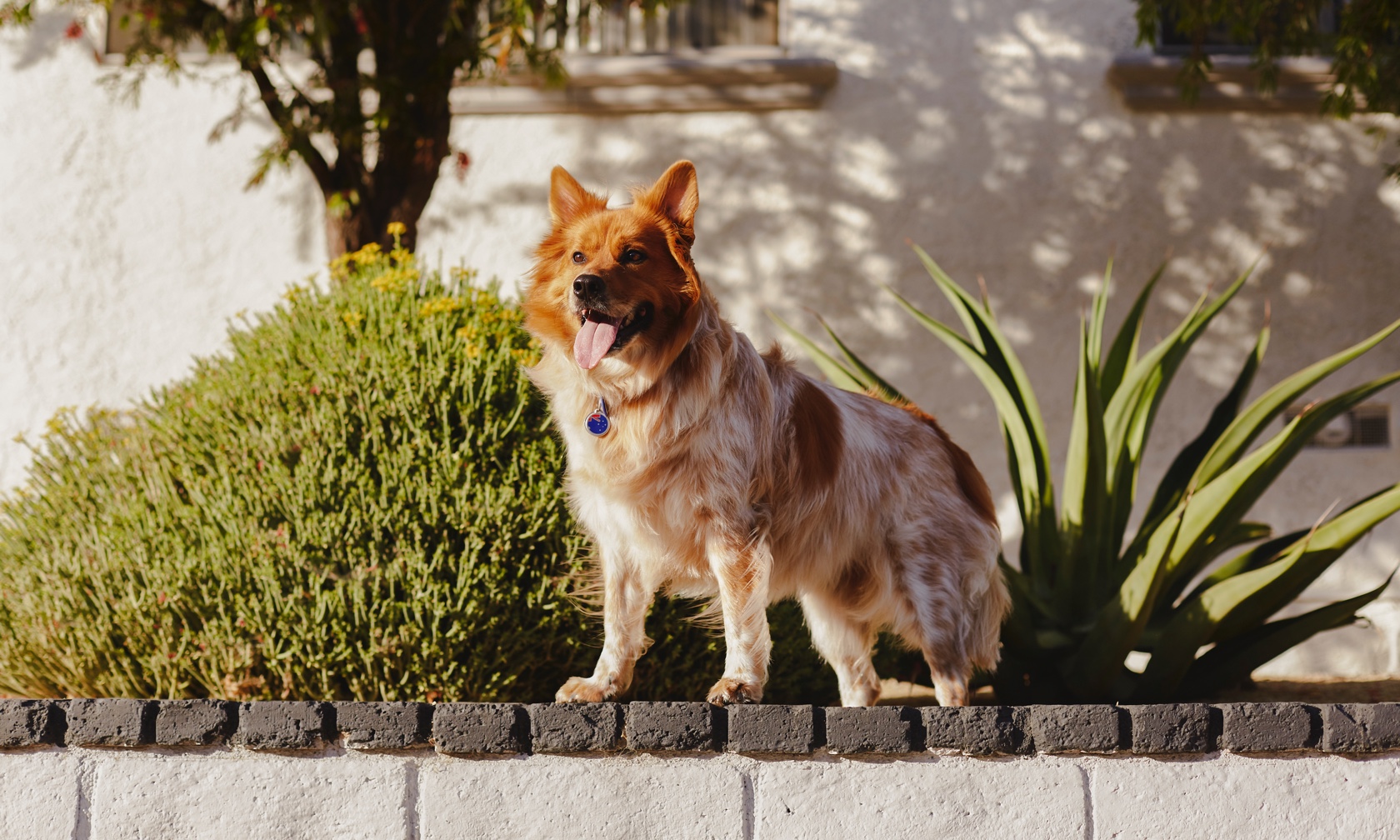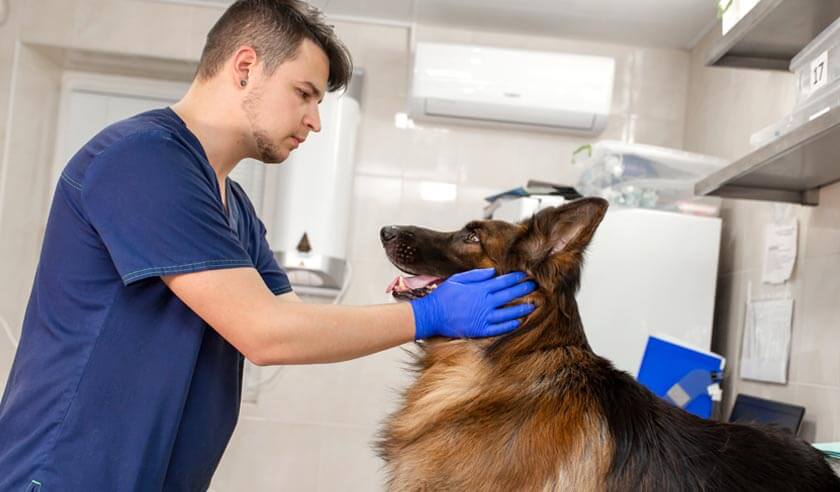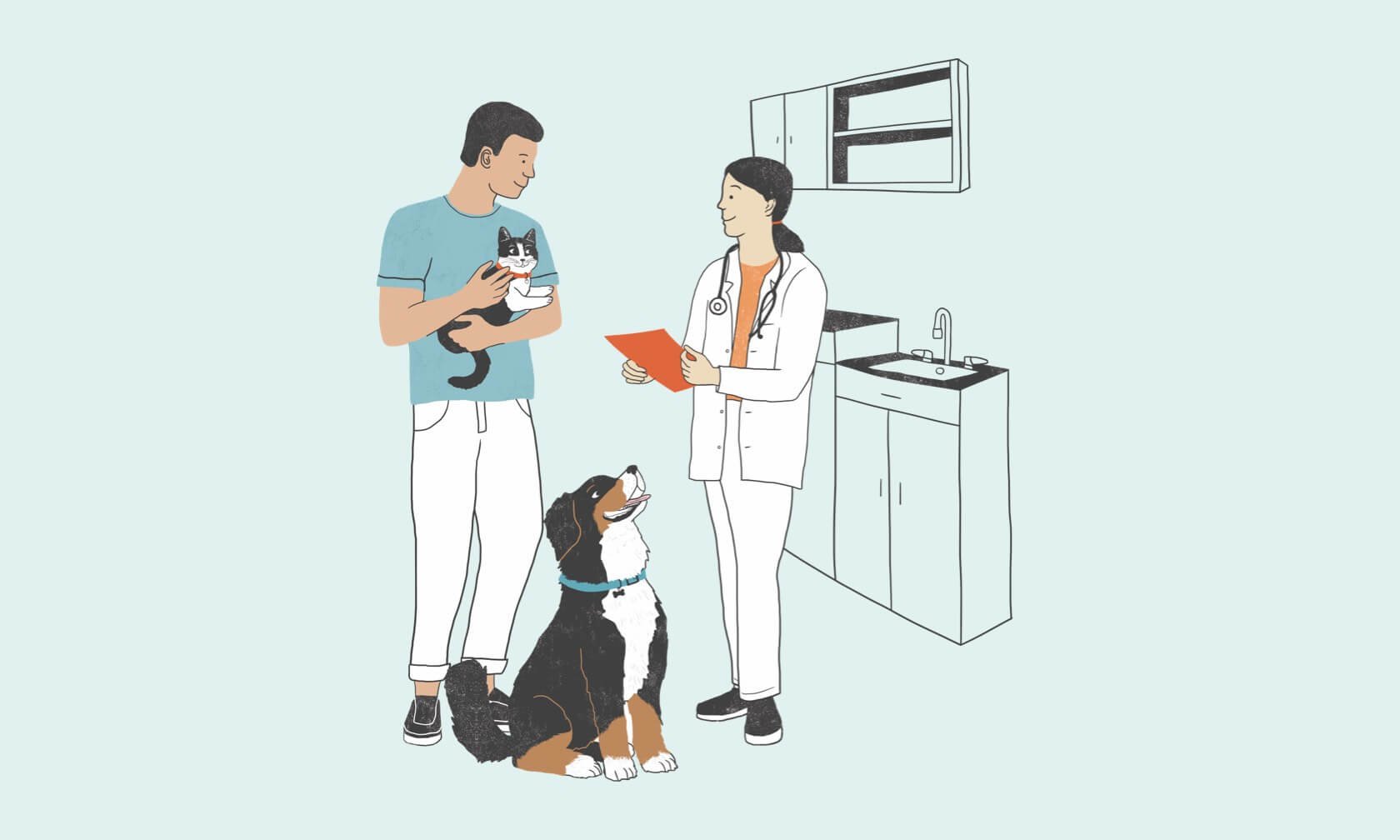Unless you’re a parasitologist or part bird, the thought of worms may not excite you (and the thought of your dog having worms is even less appealing, if not scary), however, it’s important to know how dogs get worms, what their symptoms are, and prevention methods.
Types of Intestinal Worms Dogs Can Have
Dogs of any age, size, or breed can have worms. The effects of the worms vary based on your dog’s age, health status, and the worm burden (number of worms in your dog’s system). Also, some of these worms are zoonotic, meaning they can be transmitted to people.
There are several types of worms that infect dogs, including:
- Roundworms. Roundworms are the most common worms in dogs, especially puppies, and live freely within the intestinal tract. Humans can also be infected with roundworms, typically by ingesting the eggs from contaminated soil.
- Hookworms. Hookworms are a parasite that are about 1/2 inch to one inch long and attach to the lining of the small intestines feeding on blood. People can become infected via ingestion of larvae or by walking barefoot on contaminated soil.
- Whipworms. Whipworms are 1/2-inch-long worms that live in the large intestines, creating inflammation and irritation. The eggs can live in the environment for years because they are resistant to drying and heat. The risk of humans contracting whipworm is low but not impossible.
- Tapeworms. An adult tapeworm can grow up to eleven inches in length. These worms are flat and segmented. The segments are called proglottids, about 1/2 inch long and 1/8 inch wide. and look like grains of rice when they pass in the poop of an infected dog. Once dried, they break open and can release up to 20 fertilized eggs in the environment. Their hook-like mouthparts allow them to attach to the wall of the small intestines. The risk of getting tapeworms from your dog is low.
Heartworms are also a worm, though not found in the intestinal tract. The adult heartworm will live in the dog’s heart and are spread by mosquitoes. Some heartworm disease preventives include protection against certain intestinal worms.
How Do Dogs Get Intestinal Worms?
- Roundworms. Puppies can already be infected at birth because roundworms can be passed through the placenta from the mother. After birth, puppies can also be infected through their mother’s milk. By 11 days old, puppies can pass fertile eggs from adult worms in their poop and have a multitude of worms within their intestines. Very young puppies are the most vulnerable. They can suffer serious problems, like intestinal blockage, if the issue is not addressed early.
Adult dogs are usually infected when they ingest soil or infected prey (mice or small mammals) contaminated with roundworm larvae.
- Hookworms. There are a few ways in which dogs can become infected with hookworms. Puppies can get worms through the ingestion of their mother’s milk. or a dog’s skin can be penetrated by the larvae. They can also ingest larvae when grooming or sniffing contaminated poop or dirt.
- Whipworms. Dogs get infected with whipworms by ingestion of the eggs in contaminated soil or other items that may have been contaminated with dog poop.
- Tapeworms. Eating a fertilized egg will not cause a dog to become infected. They must consume an intermediate host, like a flea or a mouse. When a dog ingests the infected flea, the digestive system breaks down the flea and releases the tapeworm eggs. Once the egg hatches, it attaches to the intestinal lining to continue its life cycle.
Signs of Worms in Dogs
- Roundworms. Puppy signs of roundworms include pot-belly appearance and gastrointestinal issues such as vomiting, diarrhea, and excessive gas. Intestinal obstruction can occur if there is a significant worm burden.
Signs in adult dogs are usually only apparent if they have underlying health issues. Dogs can become malnourished and have gastrointestinal symptoms (vomiting, diarrhea) and coughing because the larvae can move to the lungs.
- Hookworms. The main sign of hookworms is gastrointestinal upset. Other symptoms include pale gums due to blood loss, weight loss, bloody diarrhea, overall weakness, dry, dull coat, coughing, and skin issues. When puppies are infected, they can fail to develop properly. Young puppies can die from severe infections due to loss of blood.
- Whipworms. Whipworms can cause severe illness, especially in young and senior dogs. Symptoms include chronic watery diarrhea, bloody diarrhea, dehydration, weight loss, and general debilitation.
- Tapeworms. Dogs don’t normally become ill from tapeworms but can lose weight. You may notice the segments on their poop or attached to the fur around the anus. Signs include scooting on the ground or floor, licking or biting the anal area, and severe infestation can cause weight loss.
Treatment for Worms in Dogs
Roundworms and Hookworms
To lessen the worm burden and risk to puppies, the mother should be dewormed with an appropriate product ideally before breeding, but during pregnancy before puppies are born.
Puppies should be dewormed every two weeks, starting at two weeks of age until they are eight to 10 weeks old. A fecal analysis should be done at the 10 to 12 weeks to determine if the puppy needs additional treatments. A broad-spectrum preventive should be started by 8 weeks of age.
Adult dogs will receive two doses of de-wormer 3 weeks apart for roundworms. A recheck fecal exam is recommended following treatment.
Your veterinarian can discuss the appropriate deworming schedule.
Keeping your dog on monthly prevention that targets roundworms will help prevent reinfection.
Whipworms
There are several medications to treat whipworms, but repeat treatment is required for all of them. Whipworms have a high reinfection rate since the eggs can live very long in the environment.
The initial treatment protocol for whipworms lasts 3 months. It is advisable to repeat treatment in three to four months following the last treatment. Be sure to recheck the fecal matter routinely with your veterinarian.
Tapeworms
Tapeworms are treated with a different medication than the other common worms. If your puppy or dog has fleas or may have eaten a bird or small mammal, it’s recommended to treat them for tapeworms. If fleas are present, retreatment is recommended about three to four weeks after all the fleas have been eliminated.
Prevention of Worms in Dogs
The easiest way to treat worms in dogs is through prevention. To prevent worms in puppies and adult dogs, it’s important to:
- Provide proper environmental hygiene, such as cleaning up poop immediately, treating your yard for fleas, ticks, and mosquitoes, and routinely grooming your dog.
- Properly deworm pregnant dogs.
- Deworm puppies.
- Provide year-round prevention, starting in puppies as young as eight weeks and at 2.8 lbs.
- Plan for several fecal examinations during your puppy’s first year.
- Provide year-round protection against fleas and ticks.
- Regularly test for worms at least yearly, but more often may be necessary based on lifestyle.
ZPC-02570





